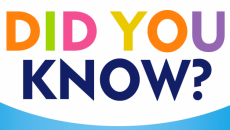Did You Know?
- The consequences of a criminal conviction are so severe and enduring that they effectively challenge one’s fundamental status as a member of society.
- One in four adult Californians has a criminal history. Many seek social work services and many seek to become social workers.
- People with criminal histories routinely encounter barriers obtaining employment and housing.
- Those seeking to become social workers encounter barriers accessing internships and dealing with the social work licensing board, the Board of Behavioral Sciences (BBS).
Social work agencies discourage, prevent and exclude potential social workers with criminal histories from entering the profession.
- The BBS does not provide guidelines for potential social workers with criminal histories to use to determine their ability to be licensed. Instead the BBS does a “case-by-case” evaluation of each application, but only after the applicant has completed a two-year graduate program.
- State agencies which license facilities that typically provide field work experience for social work interns—including the California Department of Social Services (CDSS) and the California Department of Health Care Services (CDHS)—do not allow anyone with a criminal history to be present in a licensed facility until an exemption application has been filed and granted.
- Processing of exemption requests requires several months, which—in practice—excludes students with a criminal history.
This is in spite of social work principles that:
- Support diversity and inclusion
- Value lived experience in providing effective social work services
- Promote recovery and rehabilitation
The Women’s Council advocates the full inclusion of qualified social workers with criminal histories into the profession.
In order to begin this process, the Council suggests: 1) clearly defining acceptable components of recovery and rehabilitation, and; 2) developing transparent guidelines for inclusion in academic settings, field placements, social service agencies and for registration by the social work licensing board.
The Women’s Council discusses a variety of ethical, practice and advocacy issues at its bimonthly meetings held in the greater Los Angeles area. The next meeting of the Women’s Council is Saturday July 18, 2015 at 10am in Redondo Beach. To learn more about organizing for inclusion and/or information about the Women’s Council, contact womenscouncil@sbcglobal.net or mujerista@All2Easy.net












